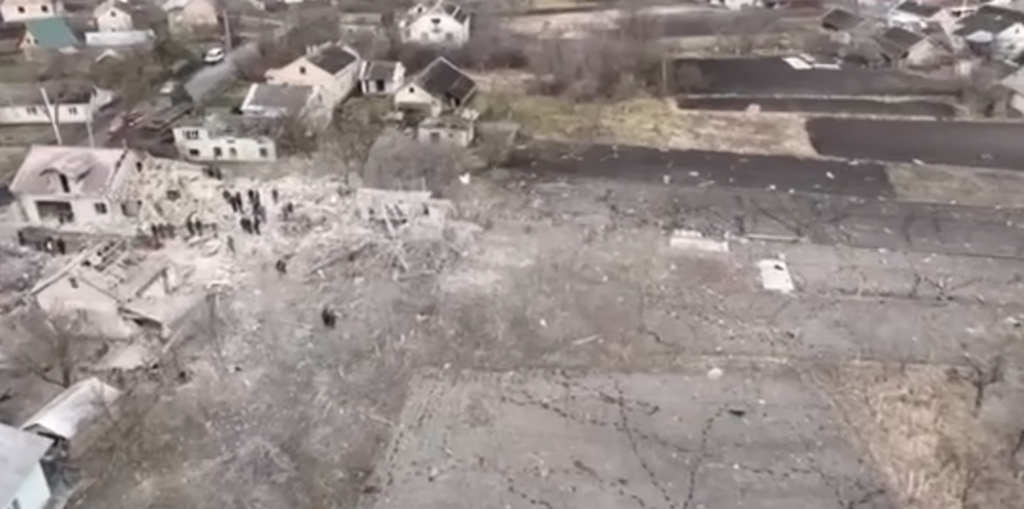For the first time, a serious discussion about how and who to help find a new home entered the walls of the parliament in April 2022, when the deputies registered the draft law. The issue turned out to be quite difficult, so it was adopted in the second reading only 10 months later. And then it is still waiting for the President’s signature to gain legal force.
Despite the fact that the law has been adopted, the debate about where to get money for compensation, where and to whom to restore housing in the first place will continue for a very long time. Analysts of the Joint Action Center explained how destroyed and damaged property will be compensated, whether there is money for it and why not all destroyed cities and villages will be rebuilt.
How will the destroyed and damaged property be compensated
The adopted law stipulates the creation of a Register of houses damaged and destroyed as a result of Russian aggression. There will be information about the housing itself and its damage, about compensation and financing of restoration. The holder of the register will be the Ministry of Infrastructure, Development of Communities and Territories. Already today, you can submit an appropriate electronic application in “Diya” or a paper application through the Central Administrative Office or a notary. Together with the launch of the Register, the authorities plan to create mobile TsNAPs that will collect this information directly on the ground. To date, Ukrainians have submitted more than 300,000 applications for destroyed and damaged property, including housing, through Diya. When the law enters into force, such data will automatically be transferred to the Register.
The law provides for three methods of compensation. The state can pay for construction work or the purchase of construction materials so that the owner of the damaged home can restore it on his own. If the dwelling is destroyed as a result of the war, the state can either reimburse its value or finance the purchase of another dwelling by issuing a housing certificate. The latter is something like a designated check that can be used exclusively for the purchase of housing.
In order to pay compensations, the executive committees of local councils, military or civil-military administrations create an advisory body – the Commission for Consideration of Issues on Providing Compensation for Destroyed and Damaged Property. It should provide advice on obtaining compensation for destroyed housing, as well as decide to whom such compensation should be provided.
But the commission, as a consultative and advisory body, cannot make decisions on the merits. This is the authority of state authorities or local self-government. Another feature of the activity of advisory bodies is that its members cannot be held criminally or administratively responsible for the decisions made. Therefore, expanding the powers of the commission contradicts the Constitution and creates a huge space for irresponsibility and abuse in the distribution of potentially very large sums.
Where to get money for compensation?
The scale of the destruction caused by the war started by Russia is colossal. As of December 2022, according to the Kyiv School of Economics, only about 150,000 residential buildings were damaged or destroyed. The amount of damage from the destruction of housing reached 54 billion US dollars. This is the approximate sum of the revenues of two annual state budgets of Ukraine.
Legislators offer a very large list of sources from which compensation will be paid for destroyed and damaged housing. These are funds from the state and local budgets, international financial organizations, investors, international technical assistance, reparations to Russia and income from other sources. Mostly it is about money that is not yet available. For example, in order to receive reparations, Russia must first be defeated, and then forced to pay. How investors can finance housing compensation is not clear, because their activity is a priori aimed at making a profit. What is prescribed in the law is rather a charitable aid, and not an investment.
It is unlikely that housing restoration will be financed from the state budget. This year’s own revenues are expected at the level of 1.3 trillion hryvnias, and expenses are about 2.6 trillion hryvnias. The state spends twice as much as it earns, and the deficit is covered thanks to the help of partners.
How to spend money effectively
Not all destroyed cities and villages will be able to be rebuilt. And there are several reasons for this. During the year of the full-scale war, millions of our fellow citizens left their homes: some left the country, others moved to safer western and central regions. And not all of them will return home. Such people are more likely to take advantage of the opportunity to receive compensation for a destroyed home than to count on a housing certificate.
It does not make economic sense to restore some of the completely destroyed towns and villages. Many of them arose as centers of artificially created Soviet industry. Some of the giant factories, whose satellites were cities and villages, stopped forever even before the war, and those that worked were destroyed during the hostilities. Therefore, it makes no practical sense to reproduce the previous model of the economy, nor the cities associated with it.
The most important thing now is for the authorities to explain to people as frankly as possible how long the process of reconstruction will be. What compensations

